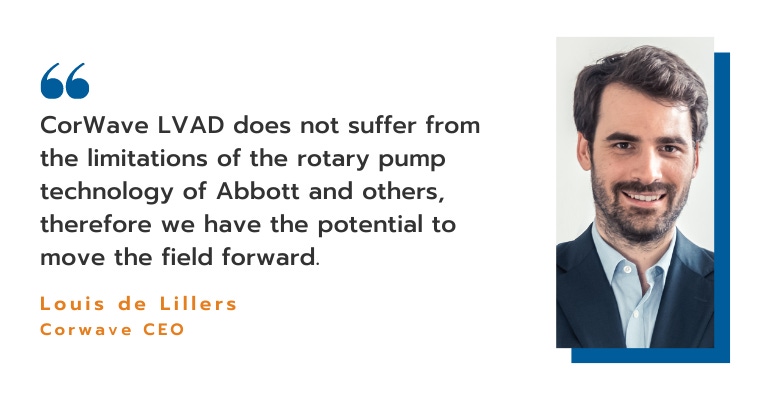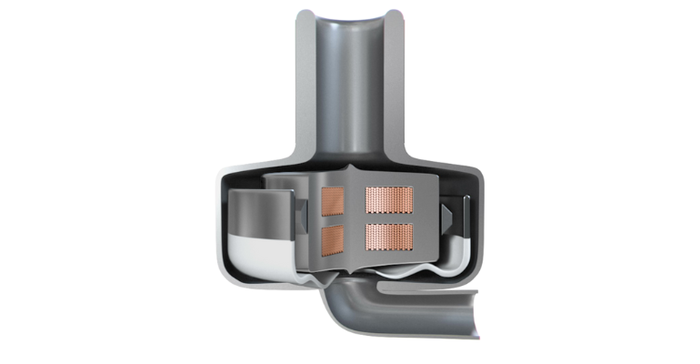Can CorWave Fill Medtronic's Shoes in the LVAD Market?
Medtronic's exit from the left ventricular assist device (LVAD) market left a huge void. A small French company wants to fill it.
July 12, 2023

A small French company has some mighty big shoes to fill in the left ventricular assist device (LVAD) market.
When Medtronic pulled the plug on its embattled HeartWare ventricular assist device in 2021, the departure created a significant void in the LVAD market and highlighted the urgent need for innovation in the space to improve outcomes for end-stage heart failure patients.
Abbott said it had the capacity and supply to effectively support the growing demand for mechanical circulatory support devices with its HeartMate 3 device, but Abbott and other LVAD makers suffer from limitations of using rotary pump technology, according to CorWave CEO Louis de Lillers.
Clichy, France-based CorWave is developing an implantable heart pump for advanced heart failure patients that is based on a technology called the wave membrane, and is designed to mimic the action of the native heart, the CEO noted.

“The pump is intended to change patients' lives by offering survival with reduced adverse events, improved exercise capacity, and higher heart recovery chances,” de Lillers told MD+DI.
He said the pump is intended to change patients' lives by offering survival with reduced adverse events, improved exercise capacity, and higher heart recovery chances.
The company recently announced a second closing of its series C funding round, which brought the round up to €61 million (roughly $70 million USD) in a second closing of its series C funding round. CorWave raised $40 million in its first series C closing. An undisclosed percent of the new capital is expected to fund the company’s first clinical trial. To date, the company has secured €80 million in equity and employs more than 70 people.
The Société de Projets Industriels fund, which is managed by the French public sector investment bank Bpifrance, contributed to the round.
CorWave declined to divulge when the international, multicenter feasibility study will commence.
The exit of Dublin, Ireland-based Medtronic from the market “has made a monopoly of the European Union (EU) and U.S. LVAD markets, which does not encourage innovation from market leaders,” de Lillers said. “The few LVADs in clinical development are all based on a rotary pump technology, as all LVADs have been for the past decade, so they are not in a position to bring disruptive innovation.”
CorWave LVAD is a next-generation LVAD that uses a pumping technology inspired by marine animals and protected by 15 patent families, according to de Lillers.
“Contrary to current LVADs, our pump is designed to produce a pulsatile blood flow synchronized with the native heart, and to be a smart pump that automatically adapts to patients’ needs,” he said.
The pump’s wave membrane is a biomimetic technology that mirrors the undulating movement of marine animals, which allows the animals to efficiently move fluid and propel them through water.
“The pump is a polymer membrane that reproduces a similar, though reversed, interaction, whereby the membrane is fixed and the blood is propelled,” de Lillers said.
CorWave expects it will take about three years from the initiation of clinical trials to market approval. The company plans to first focus on the EU and U.S. markets.
“The LVAD market currently has a very low penetration rate, largely due to the high rate of severe adverse events,” de Lillers said. “Bringing in a new device that finally overcomes the limitations of rotary-pump LVADs and decreases adverse events might increase adoption and make this life-saving therapy accessible to more patients.”
About the Author(s)
You May Also Like




